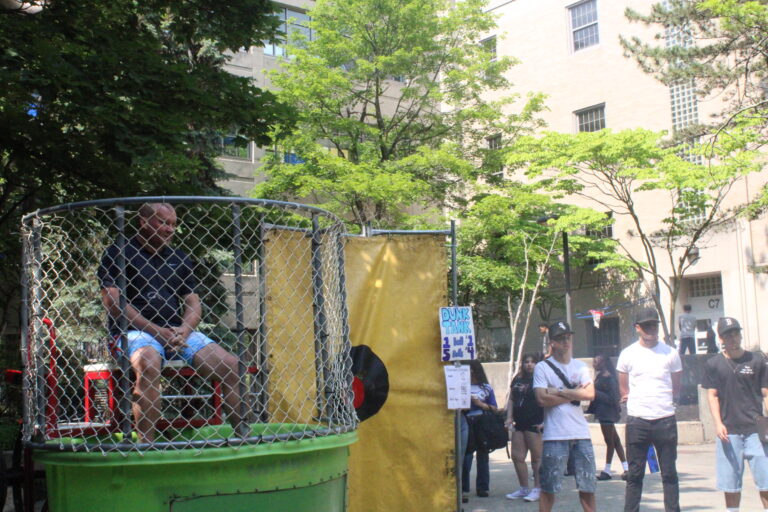Aiden Luciano sat down with Superintendent Ligia Noriega-Murphy for an exclusive interview. The interview has been edited for clarity and length. They discussed decisions the superintendent makes, how she is leading Malden, and the recent teacher strike. This is only the first half of the interview and the second half will be published at a later date.
So what are some of the day-to-day decisions a superintendent makes?
The day-to-day decisions are challenging because it focuses on macro issues. Many of my decisions involve budget. The Principals play a big role in decision making in collaboration with the financial director with all final decisions made by me; including decisions about partnerships.
What kind of partnerships?
For example, we are looking at partnerships that offer multi-tiered support systems. At the moment, we don’t have a district wide system for how we approach challenges in schools. Everyone has their own system but we need to make decisions in a cohesive way. The way I make decisions about partnerships and the services they provide is by getting feedback from principals, assistant superintendents as well as anyone else who will be overseeing the project. This process involves a lot of conversations between these groups. The decision to create a partnership will also take into account how much it will cost the district.
Is there anything in your education that you have studied that you’re applying to the public schools?
Everything! I have a Master’s in Education and a Master’s in Management. I apply a lot of what I learned in my job. I also researched Psychometrics of Intelligence. This helps me question many things that are done in schools. I ask a lot of whys instead of making assumptions. I ask questions like, “Why are you doing this?” or “What is the data?”
I don’t know if you have heard that I present a lot of data. This is because before any decisions are made, or before we identify issues, we should know what the indicators are telling us about what is happening.
Student enrollment is an example. The question we ask is, “How do we enroll students in different schools according to the program?” So the data might tell us that in one school, we might have too many students enrolled in a specific program. This would mean that the school might need more staffing, and also the potential that it will create some disruption in the school climate because of increased instances of certain behaviors. So the decision that I would make with the principal, and also the special education staff, is to see if we can separate the middle school students in the program in one school, and have the elementary school with the same program in another school.
We would try to restructure programs instead of allowing one school to have a high percentage of behaviors that can disrupt the school climate. My background in international studies allowed me to train people overseas. This training included the general curriculum which integrated the arts. I opened Boston Arts Academy, the first performing and visual arts school in Boston. I want to see how teachers can modify the curriculum beyond reading and writing to include project-based [learning] pathways. Before we make decisions about the curriculum, I seek information from directors and coaches who are the experts in specific subjects.
My initial findings about courses offered in schools through the equity lens led me to discover, for example, that Spanish is being taught 5 days a week in one school and 3 days a week in another. Therefore, last year, we started a course offering audits by compiling information from each school to see what was offered to students in each grade level. This led to the creation of our PreK-12 Program of Studies which is posted on our website. We are using the PreK-12 Program of Studies this year as a baseline to inform our practice on what we need in order to create equitable course offerings in our K-8 schools for SY 2023-2024.
Leaders as yourself have to make a lot of decisions. And they don’t always go as planned. Is there anything that you would do differently at the beginning of the school year or just in general?
One of the things that I would do differently, is to encourage more student voice and parent input. Last year, I hosted a lot of community forums. The work that was planned got disrupted due to pressing matters that required immediate attention such as deciding on the mask-or-no-mask requirement for students. We started this academic year offering professional development that is coherent and aligned to the Arc of Learning and to the district wide goals and targets. Just like last year, we are continuing to prioritize the offering of safety training for staff and parents. This year, the safety training will be extended to students as well.
A new K-8 literacy curriculum is being implemented this school year to ensure that everyone is following the same units, giving students the same access to high quality materials and instruction.
I am very proud of the teachers who attended professional development this summer in order to be ready to use the new ELA and Math curriculum. We also had 54 teachers who worked on integrating K-8 culturally responsive literature in the curriculum.
Now you brought up if we had more funding. So do you plan on doing something to get the funding? Or is there already something in the works?
We get our funding from the City. We have to make sure that we staff all the schools with educators first, support systems second, and then other support staff. I am working with a group of parents and principals to refine the process on how we look at our budget.
So some teachers have expressed frustration and feeling overwhelmed with not feeling supported. They just went on strike and same as the students with the walkout last year, what are you doing to help build relationships with teachers or build community?
One of the things I have done is to visit schools and host meetings with educators including one-on-one meetings with teachers to hear their voices. During the strike, I got beautiful text messages from teachers saying, “I’m sorry, I have to do this.” I understand as I used to be a union member too.
There are some decisions which are made collaboratively and some decisions that are not within the purview of the Superintendent. There was some degree of misinformation. Improving channels of communication to avoid the spread of misinformation is a priority. When people only hear one narrative, it does not provide the full picture. Since I am leading the school district, I understand why it might seem that I make every decision unilaterally.
I do not make decisions on how much funding the district is going to receive. Within the confines of the budget, we make collaborative decisions on allocation of funds. I understand that budget decisions appear to be the sole responsibility of the Superintendent; but in fact each funding decision is made through a process.
I am concerned about teachers not feeling supported. Our goal is for every teacher to feel supported and validated. This is an area we need to focus on to ensure we have a pulse on school needs including why teachers feel unsupported.
I met with some teachers who were looking for specific materials. I asked the principals to gather wish lists from teachers. I also meet monthly with the District Parent Teacher Organization to learn about the needs of the schools. I thank the educators and staff that meet with me, call, text and email to share their perspective and needs.
Would you like to make a comment about the teacher strike? Like how you feel about it? Or which way it should have gone? Or do you think they should have done something different? You think you should have done something different?
I always had ongoing conversations with educators, this has been my practice for 27 years working in education. Regarding the strike, I believe people have the right to make their own decision. In response to your question, “Was there a need to strike?” Probably not, because we were talking and engaging in conversations.
We planned with Principals how to support staff coming back from the strike which caused a lot of stress, therefore; our focus was on the social emotional wellbeing of our staff and their ability to welcome our students. To eliminate stress we decided to postpone assessments during the first week and a half, which allowed schools to refocus on teaching and learning.



